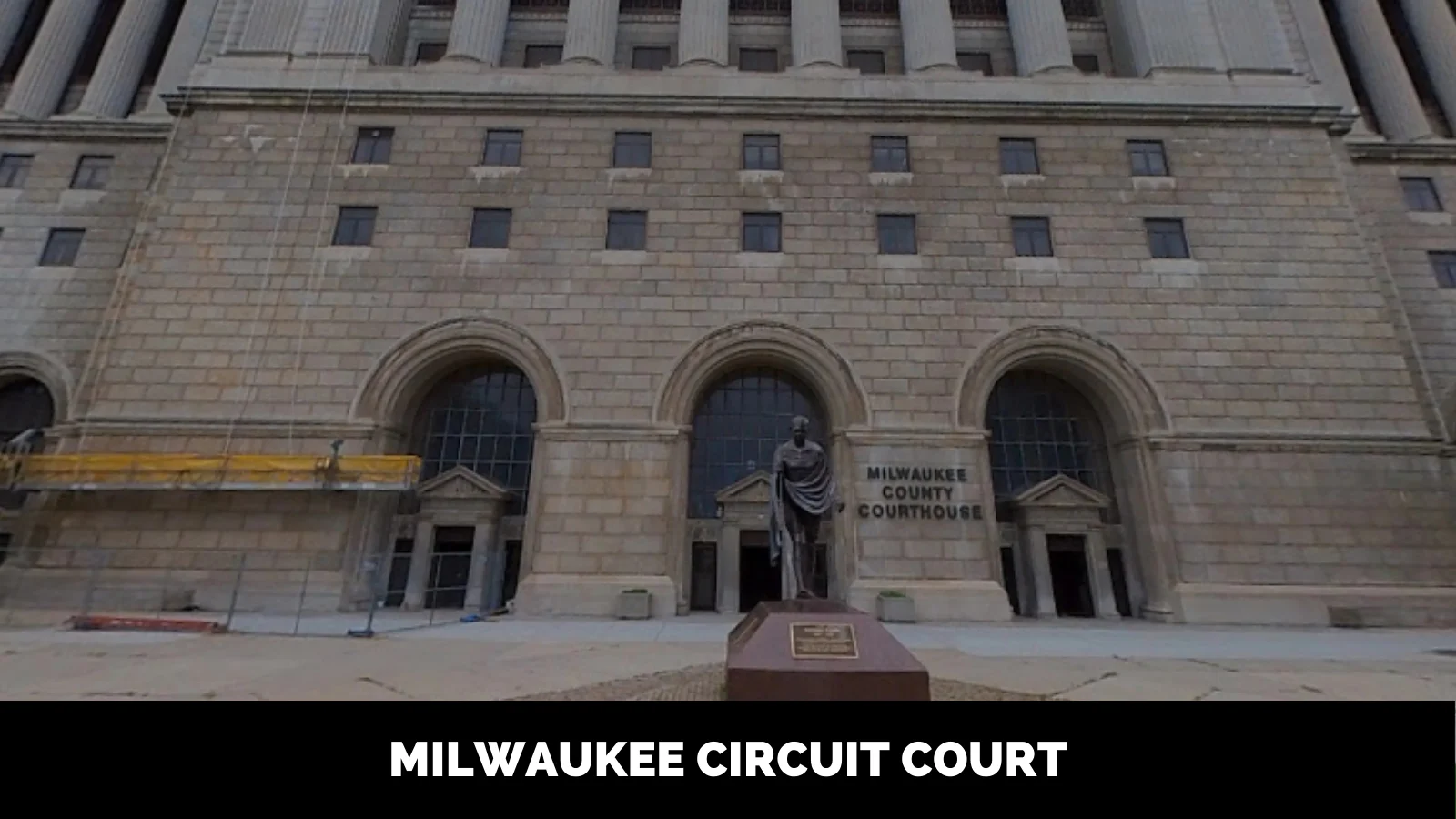Milwaukee Circuit Court: Understanding the Legal System in Wisconsin
Milwaukee Circuit Court is an important legal institution in Wisconsin that serves as the first point of contact for many individuals seeking legal recourse. The court system can be a confusing and overwhelming process, but understanding its structure and functions can make navigating it much easier. In this article, we will explore the Milwaukee Circuit Court and the legal system in Wisconsin.
Introduction
The Milwaukee Circuit Court is the main court of general jurisdiction in Milwaukee County, Wisconsin. It handles a variety of cases, ranging from small claims to felony offenses. The court system in Wisconsin is based on a hierarchical structure, with the Supreme Court at the top, followed by the Court of Appeals, and the Circuit Court at the bottom. Understanding the structure and functions of the Milwaukee Circuit Court can be helpful for anyone who may need to interact with the legal system in Wisconsin.
The Role of Milwaukee Circuit Court
The primary role of the Milwaukee Circuit Court is to resolve disputes and enforce the law. It does this by holding trials and hearings, making decisions on legal matters, and issuing judgments and orders. The court is responsible for ensuring that justice is served and that the rights of all parties involved are protected. The Milwaukee Circuit Court also oversees the administration of the court system in Milwaukee County, including managing court records, selecting jurors, and appointing court commissioners.
The Structure of Milwaukee Circuit Court
The Milwaukee Circuit Court is made up of 47 judges who are elected to six-year terms. The judges are divided into four branches, which are responsible for hearing different types of cases. The branches include the Civil Division, Criminal Division, Family Division, and Probate Division. Each division has its own set of judges and courtrooms, and handles cases that fall under its area of expertise.
Types of Cases Heard in Milwaukee Circuit Court
The Milwaukee Circuit Court hears a wide variety of cases, including civil, criminal, family, and probate cases. Civil cases involve disputes between individuals or businesses, such as contract disputes or personal injury lawsuits. Criminal cases involve offenses against the state, such as theft, assault, or murder. Family cases involve issues related to marriage, divorce, child custody, and child support. Probate cases involve the distribution of assets after a person dies.
How to File a Case in Milwaukee Circuit Court
To file a case in Milwaukee Circuit Court, you must first determine which division your case falls under. Once you have determined the appropriate division, you can file your case by completing the necessary forms and paying the required fees. It is important to follow all of the court’s procedures and deadlines to ensure that your case is heard in a timely manner.
The Jury System in Milwaukee Circuit Court
Juries play an important role in the Milwaukee Circuit Court. In criminal cases, the defendant has the right to a trial by jury. In civil cases, either party can request a trial by jury. Juries are composed of 12 citizens who are selected from a pool of eligible jurors. The jury is responsible for determining the facts of the case and rendering a verdict based on the evidence presented.
Legal Representation in Milwaukee Circuit Court
Individuals who appear in Milwaukee Circuit Court have the right to legal representation. They may seek representation from a private attorney or request a court-appointed attorney if they cannot afford one. Attorneys are responsible for advocating for their clients’ interests and ensuring that their rights are protected throughout the legal process.
Alternatives to Milwaukee Circuit Court
There are several alternatives to the Milwaukee Circuit Court for resolving legal disputes. Mediation and arbitration are two common methods of alternative dispute resolution that can be used to avoid the cost and time associated with going to court. These methods involve a neutral third party who helps the parties involved reach a mutually acceptable resolution.
Appeals Process in Milwaukee Circuit Court
If a party is unhappy with the outcome of their case in Milwaukee Circuit Court, they may appeal the decision to a higher court. The appeal must be filed within a specific time frame and must be based on legal grounds. The Court of Appeals will review the decision and determine if there were any errors in the legal process that warrant a reversal or modification of the lower court’s decision.
Ethics in Milwaukee Circuit Court
Judges and attorneys in the Milwaukee Circuit Court are held to a high ethical standard. They must adhere to strict rules of conduct that govern their behavior in and out of the courtroom. These rules are designed to ensure that justice is served fairly and impartially.
Milwaukee Circuit Court case search
Milwaukee Circuit Court case search is a feature that allows individuals to search for information about cases that are being heard in the Milwaukee Circuit Court. This can include information about the parties involved, the case status, and any upcoming court dates.
Milwaukee Circuit Court phone number
The Milwaukee Circuit Court’s phone number is (414) 278-5360. This number can be used to contact the court with general inquiries or to speak with court staff about a specific case.
How can I access the Milwaukee Circuit Court?
The Milwaukee Circuit Court is open to the public and can be accessed during regular business hours. Visitors may need to pass through security screening before entering the courthouse. In addition, many court records and documents can be accessed online through the Wisconsin Circuit Court Access website.
judges in the Milwaukee Circuit Court
As of 2021, there are 47 judges serving in the Milwaukee Circuit Court. These judges are responsible for hearing and deciding cases within their jurisdiction and enforcing the court’s orders.
Milwaukee County court records
To request Milwaukee County court records, you can submit a request in person or by mail to the Milwaukee County Clerk of Circuit Court’s office. You may need to provide information about the case or the parties involved, and there may be fees associated with obtaining the records.
Milwaukee County Court schedule
The Milwaukee County Court schedule can be accessed online through the Wisconsin Circuit Court Access website. This allows individuals to view upcoming court dates and hearings for cases that are being heard in Milwaukee County.
Conclusion
The Milwaukee Circuit Court is an important institution in Wisconsin’s legal system. It plays a vital role in resolving disputes and enforcing the law. Understanding its structure and functions can help individuals navigate the court system and ensure that their rights are protected. By following court procedures and seeking legal representation when necessary, individuals can have confidence in the legal process and trust that justice will be served.
FAQs
- What is the role of the Milwaukee Circuit Court?
The role of the Milwaukee Circuit Court is to hear and decide civil and criminal cases within its jurisdiction. It also has the authority to issue orders, enforce its decisions, and administer the court system in Milwaukee County.
- How many judges are in the Milwaukee Circuit Court?
As of 2021, there are currently 47 judges serving in the Milwaukee Circuit Court.
- What types of cases does the Milwaukee Circuit Court hear?
The Milwaukee Circuit Court hears a wide range of cases, including civil lawsuits, criminal cases, family law cases, probate matters, juvenile cases, and small claims cases.
- How do I file a case in Milwaukee Circuit Court?
To file a case in Milwaukee Circuit Court, you must first determine if the court has jurisdiction over your case. You may need to consult with an attorney or court staff to determine if your case falls within the court’s jurisdiction. Once you have determined that the court has jurisdiction, you must file the appropriate documents and pay the required filing fees. It is important to follow court procedures and deadlines to ensure that your case is properly filed and processed.
- What alternatives are there to going to court in Milwaukee?
There are several alternatives to going to court in Milwaukee, including mediation and arbitration. These methods of alternative dispute resolution involve a neutral third party who helps the parties involved reach a mutually acceptable resolution. These methods can be less expensive and time-consuming than going to court and can also allow the parties to have more control over the outcome of their case.






